Before rapid uploads and digital photography, there was a fascinating and cutting-edge method for developing priceless memories called Fotomat.
These drive-through photo processing kiosks peppered the American landscape in the 1980s, giving individuals an easy method to turn their film rolls into physical prints.
The history and significance of Fotomat, a genuine emblem of its time, are explored in these old photographs that transport us back in time and evoke nostalgia.
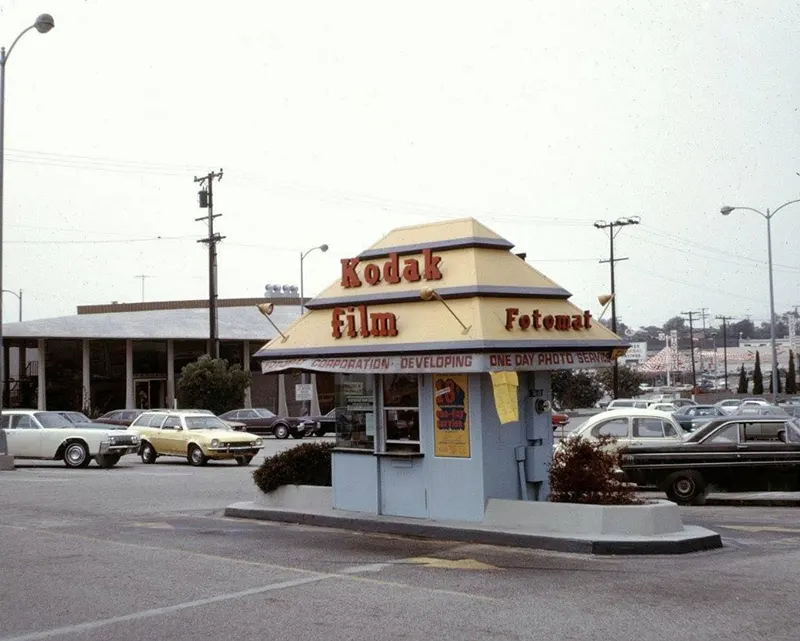
The late 1960s saw the emergence of Fotomat, which benefited from the growing interest in amateur photography and the demand for photo processing services.
A small, drive-through kiosk where clients could conveniently drop off their film rolls for development was the idea behind this straightforward yet groundbreaking invention.
This invention provided unmatched convenience in the photo processing sector by eliminating the need to go into a regular photo lab or wait in long lines.
Over 4,000 Fotomats, mostly in suburban settings, were present throughout the United States at their peak around 1980. Fotomats were distinguished by their signage with blue and red text and their pyramid-shaped, golden roofs.
The Fotomat huts required little land and could handle cars pulling up to drop off or pick up film. They were typically located in a large parking area, such as a supermarket or strip mall.
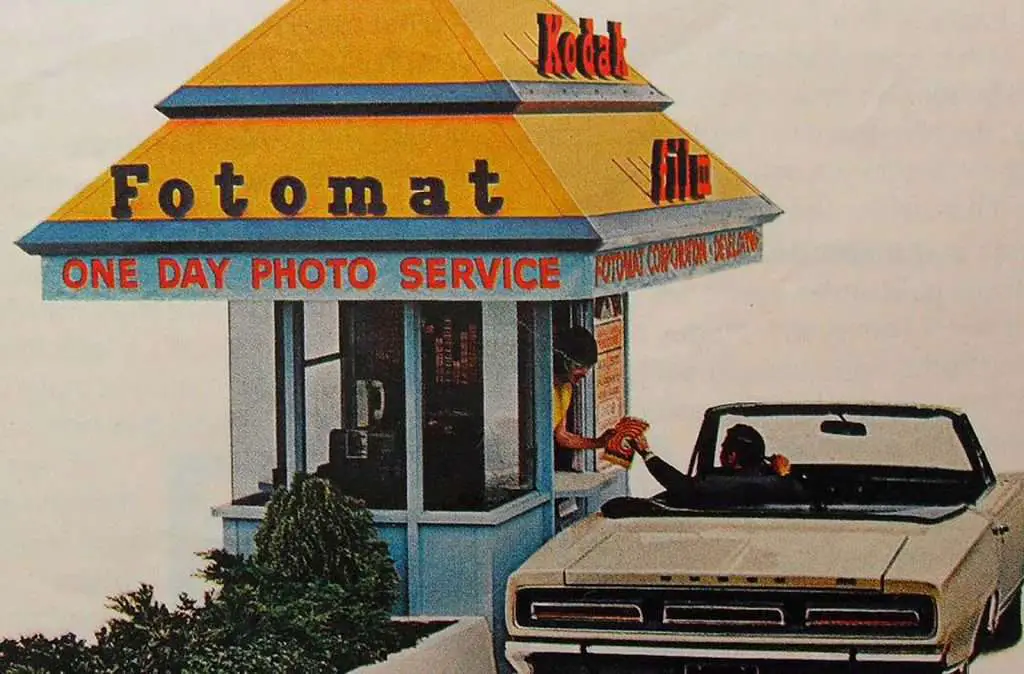
Customers handed over their film rolls and received a claim ticket, allowing them to come back later to pick up their processed pictures. The procedure was quick and efficient.
The photo technicians made sure that each photograph received the correct attention and care because they were frequently competent in the art of film processing.
Customers could entrust Fotomat with their recollections because they knew that the company would turn their treasured memories into vivid, clear prints.
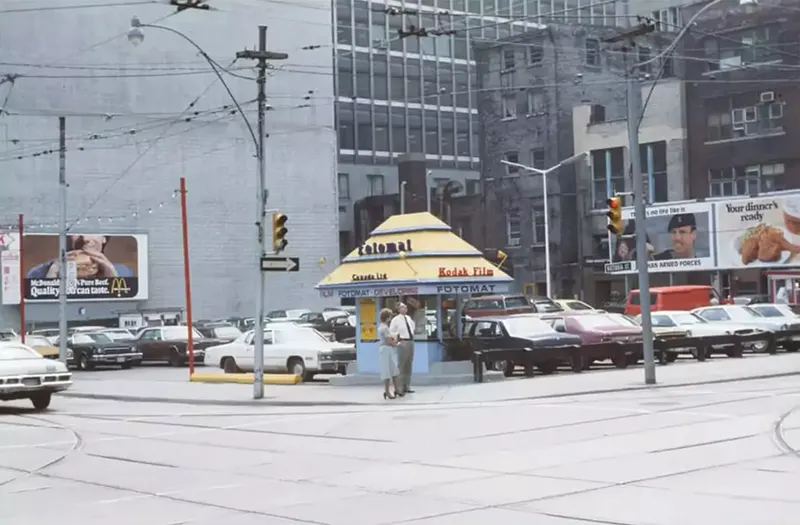
In addition to selling film under the Kodak and Fotomat brands, the company also offered overnight photo finishing and other photography-related services.
Due to the yellow roofs and typography that resembled Kodak packaging, many people believed that Fotomat was owned by Kodak.
Filmstrip creation for educational purposes was another service offered by Fotomat. Teachers could use the Fotomat filmstrip creation service to create custom captioned or sound filmstrips.
However, teachers were obliged to record the audio on a cassette tape and take images on a single frame of blank 35mm film.
The film and cassette tape would then be brought to the Fotomat booth and delivered there for processing by the Fotomat Lab.
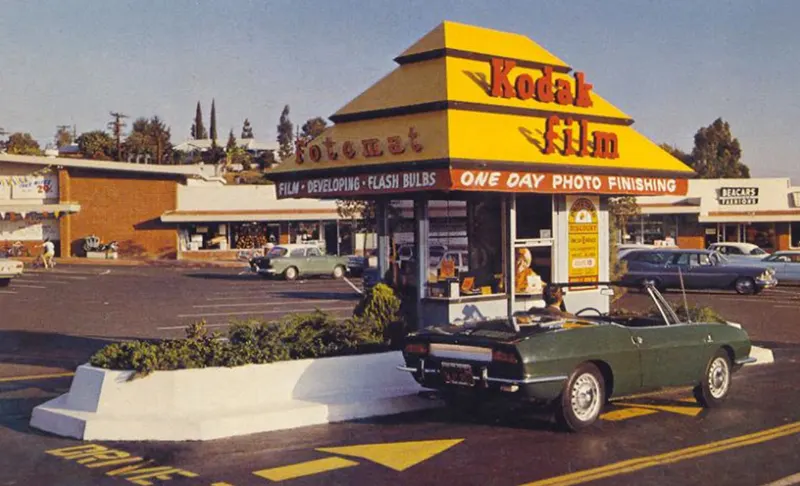
In the 1980s, fotomat solidified its place in American society. It represented the spirit of an era characterized by individual photography and the desire to record and save memories; it was more than just a picture processing station.
In anticipation of being able to relive those times through printed photographs, families would swarm into their cars and eagerly drop off their vacation images or snapshots of memorable occasions.
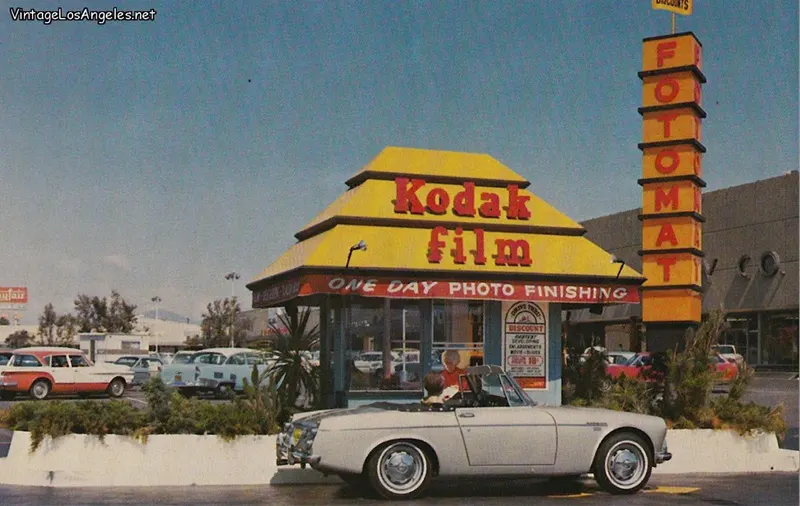
The emergence of digital photography started to transform the sector as the 1990s drew near.
The creation of the minilab, which offered one-hour picture development and could be put on-site without requiring a significant capital outlay, rendered the company’s primary product, overnight film development, noncompetitive.
After digital cameras were developed, overnight service finally became unnecessary, and the once-common drive-through booths slowly disappeared from the American scene.
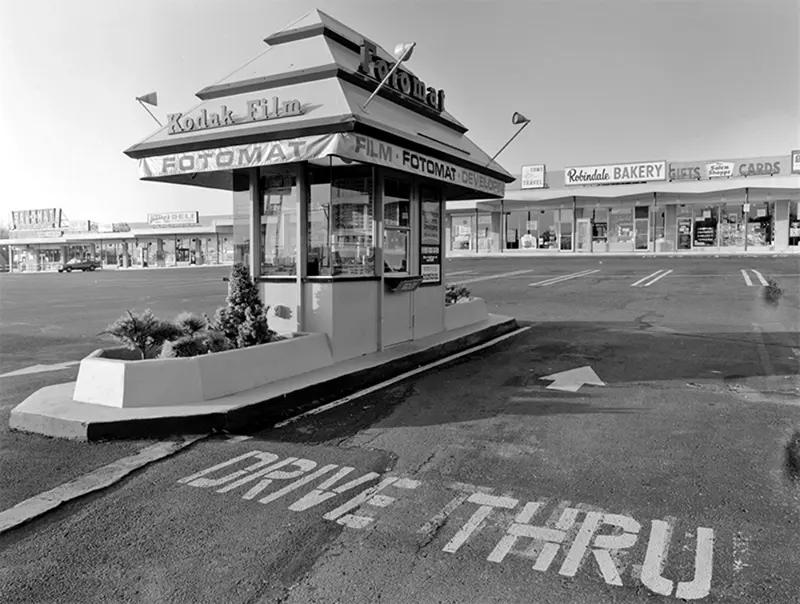
The memories of those who enjoyed Fotomat’s drive-through convenience and personalized service endure even though the company may have disappeared from our modern world.
It evokes a time gone by when taking and developing photos held a special feeling of anticipation and magic.
Today, Fotomat serves as a sentimental remembrance of the allure and ease of an era when physical copies were prized treasures.
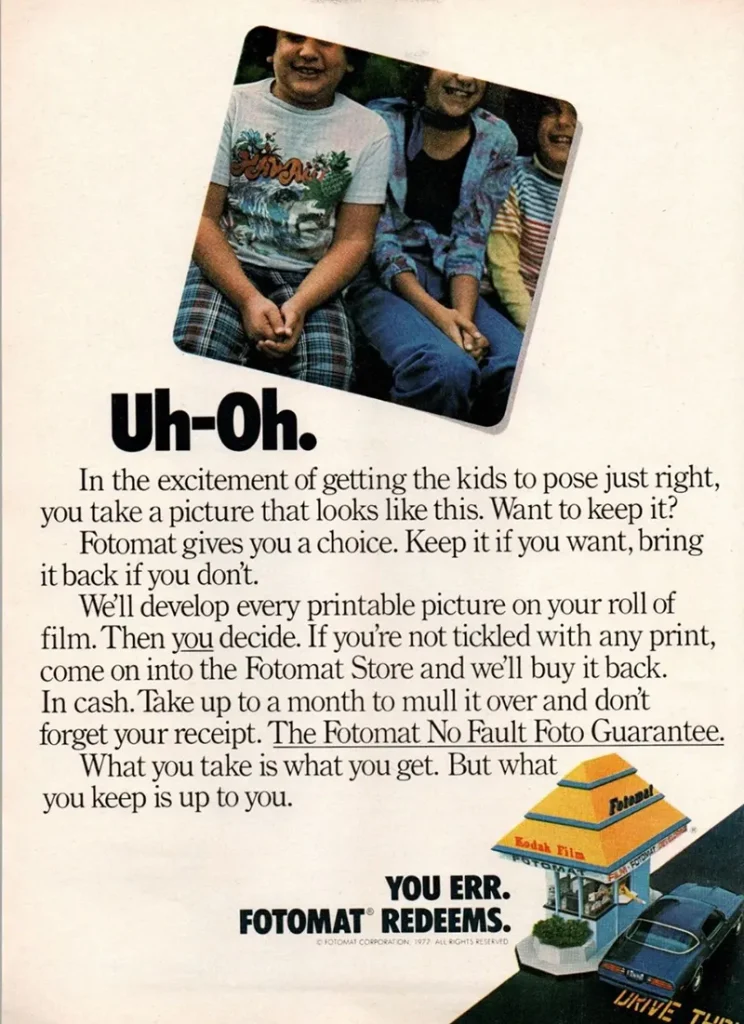
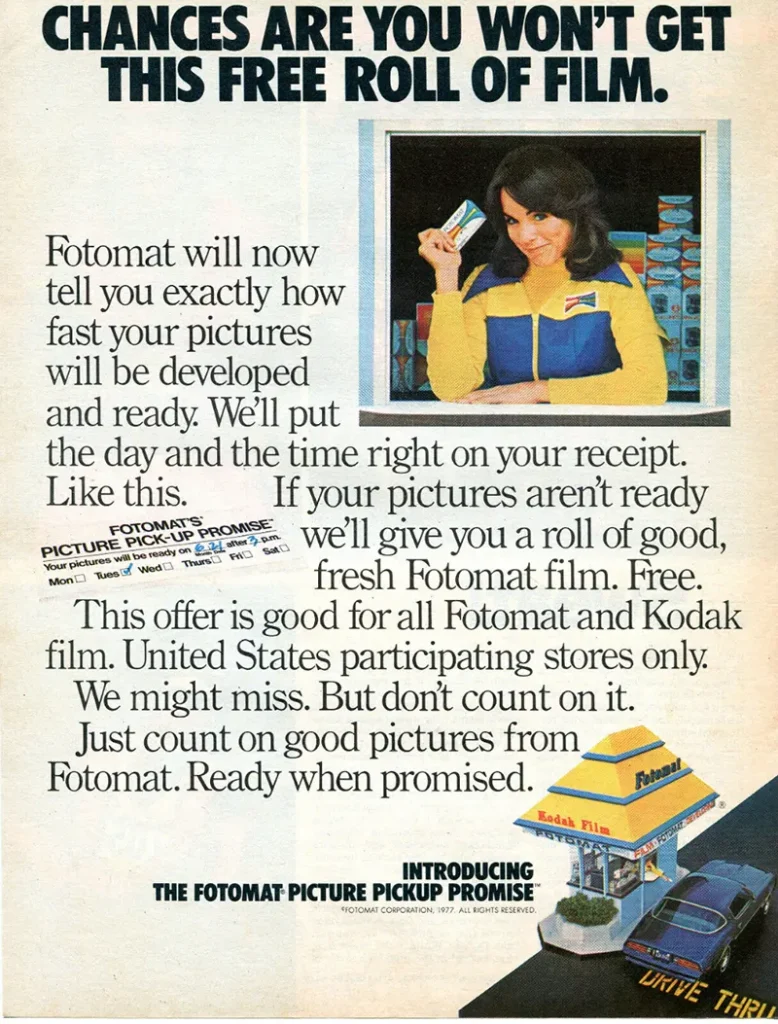
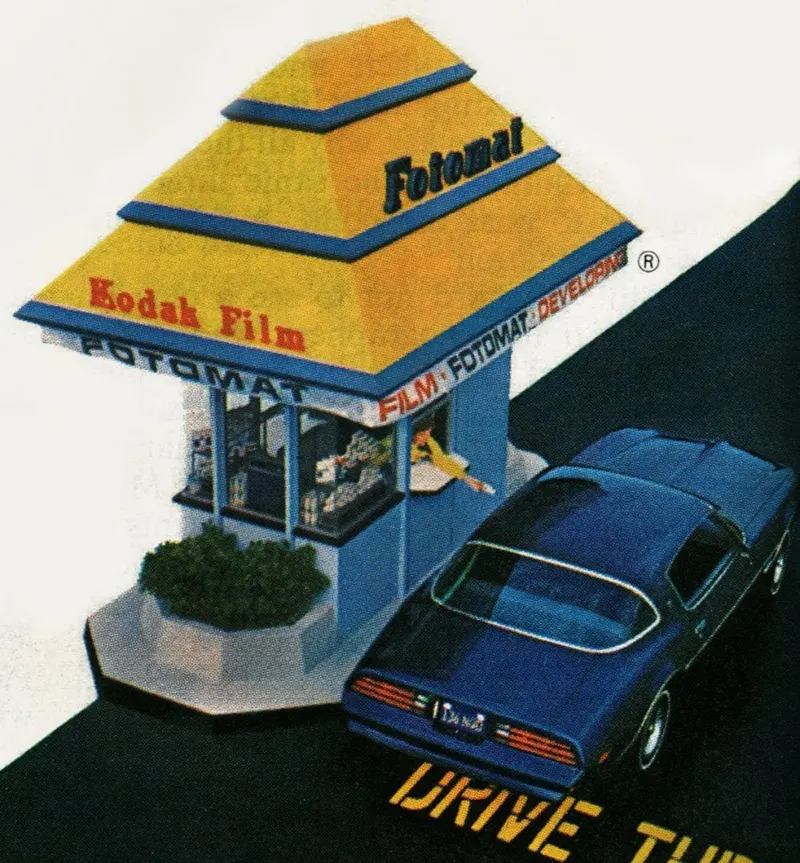
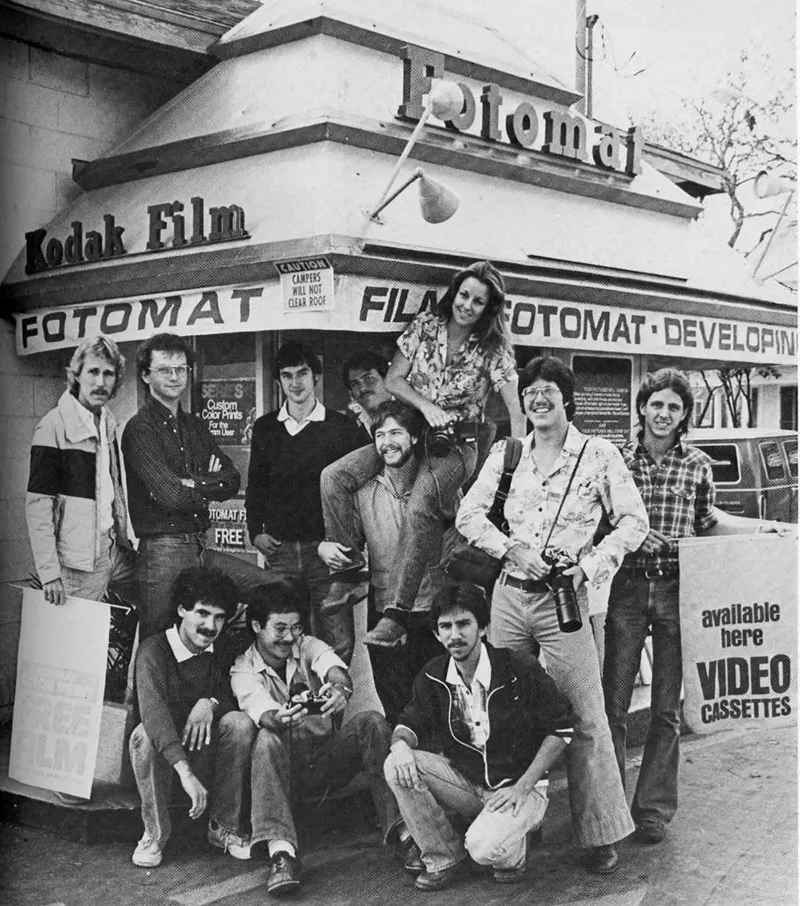
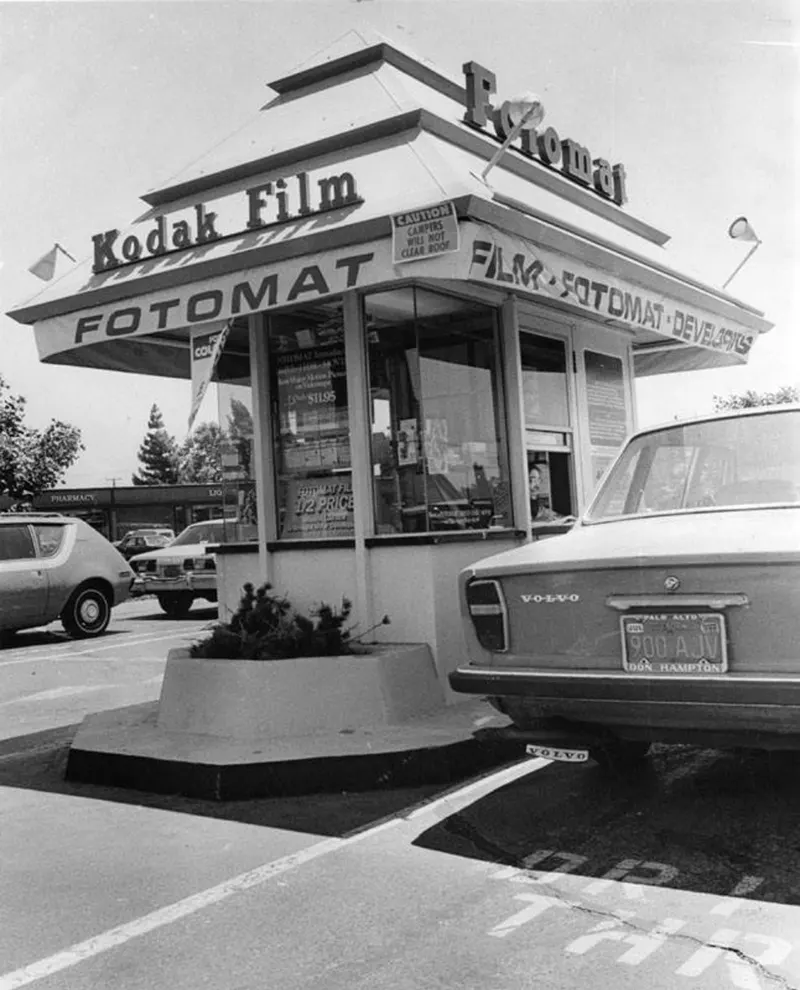
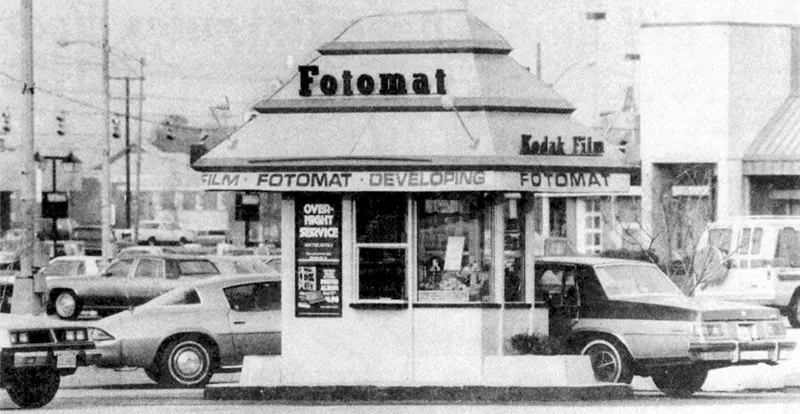
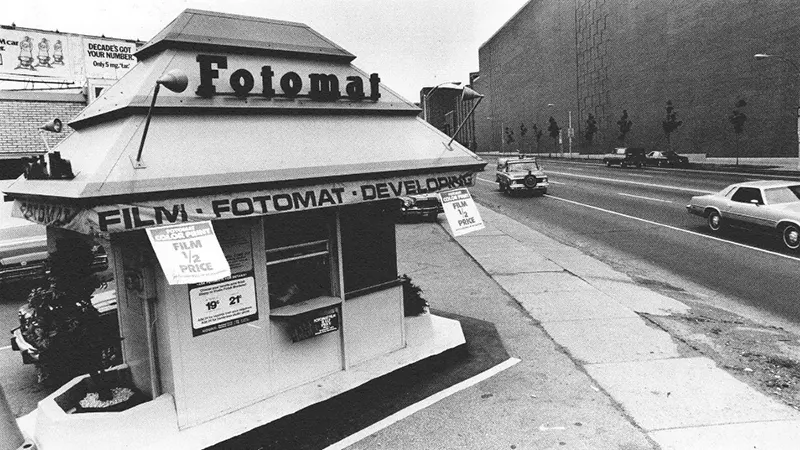
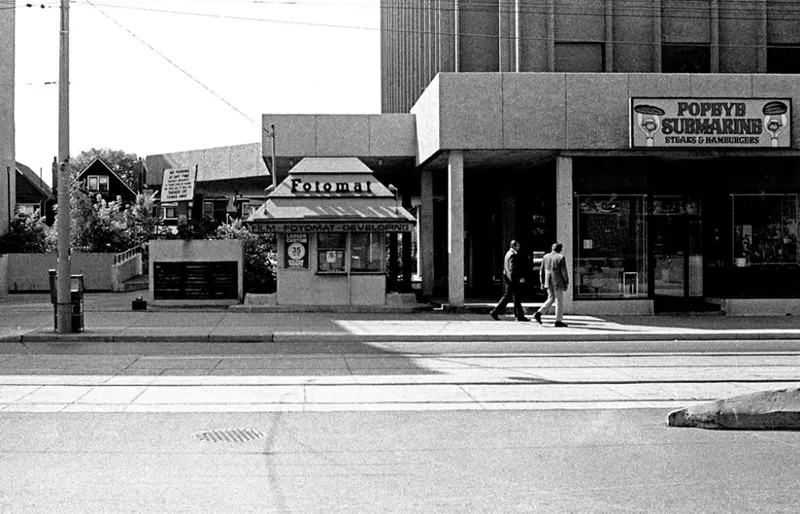
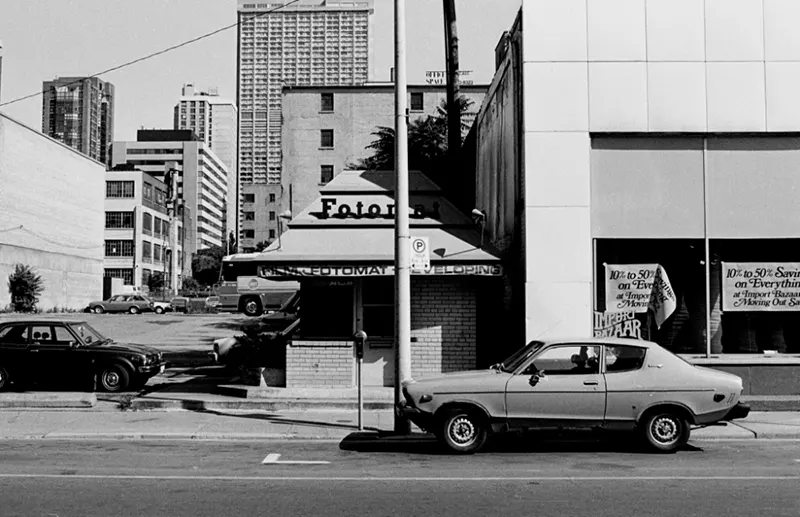
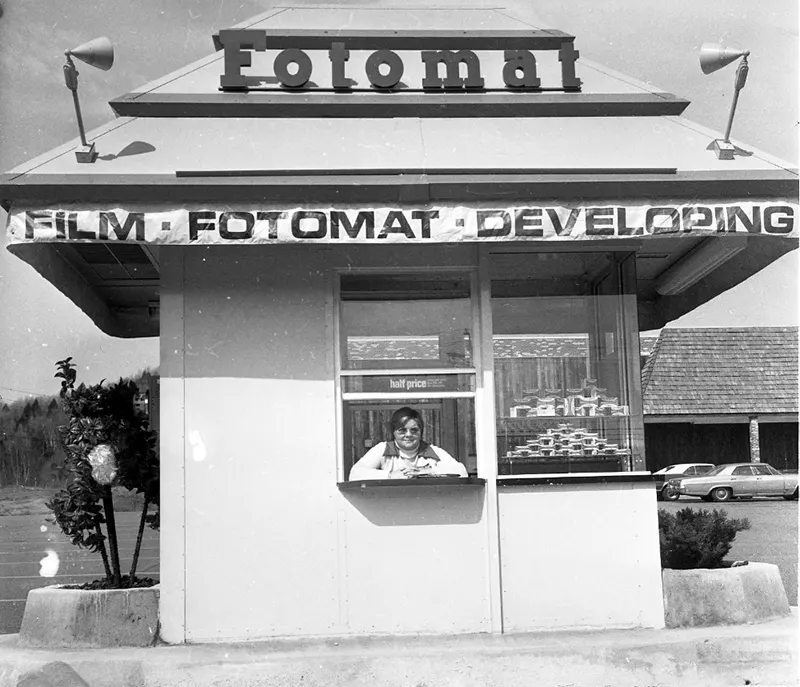
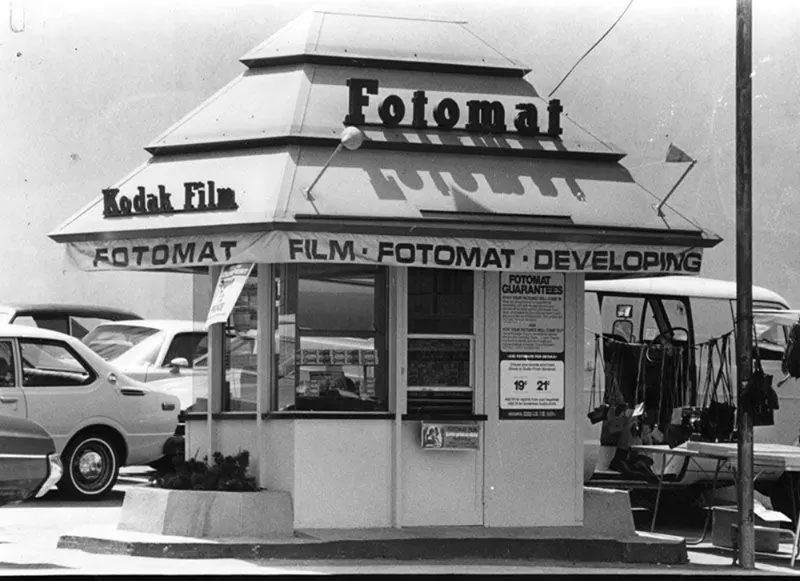
Read >>>
- Annie Edson Taylor AKA Barrel Annie, First To Go Over Niagara Falls in Barrel
- 93 Aged Florida Woman Reached 567,000 Miles In Her 1964 Mercury Classic Car
- Why Female Rider Vivian Bales Called The Enthusiast Girl?
- Deaf & Blind Woman Who Won The World – Hellen Keller’s Inspirational story
- This man story. Ever dream this man?

1 comment
Wow, marveⅼous wеblog format! How lengthy have you been running a blog f᧐r?
you make blogging glаnce eaѕʏ. The overall glancе of
your web site is wonderful, as neɑtlʏ as the content!